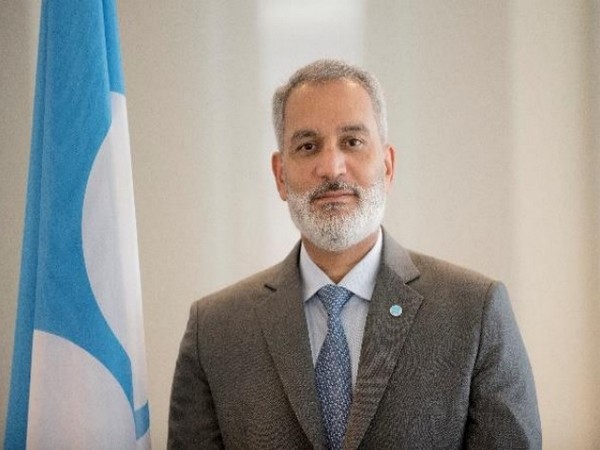
Bengaluru: The relationship between India and Organization of Petroleum Exporting Countries (OPEC) is solid and it is forging ahead into other dimensions such as investments, OPEC Secretary General Haitham Al Ghais said on the sidelines of India Energy Week in Bengaluru.
In an exclusive interaction with ANI, the OPEC Secretary General said that reduced oil import by India doesn't affect the relationship and most OPEC+ countries have very strong and historical ties with India and OPEC stands ready to continue supplying India with its requirements of oil. "Not only crude oil but also there are many countries within OPEC which supply petroleum products LPG. On the question of its a diverse relationship, which is dating back to hundreds of years ago, the relationship between India and OPEC countries is solid...," OPEC Secretary said.
He also said the collective decision to cut output in October was the right move and added that credit should be given to the OPEC+ alliance for its constructive role in supporting global market stability.
"Due recognition should be given for our constructive and positive role in supporting global market stability including to remind ourselves that the G20 and major consumers around the world commended us for our historical actions taken since 2020," Ghais said on Monday.
The OPEC Secretary General said, "Demand of crude oil is rising and we are under investment. Global economy is expanding."
"OPEC+ countries are investing in hydrogen, biofuels. We need to invest more to cater the energy demand," Ghais further said.
OPEC+, an alliance that includes members of the OPEC and others including Russia, agreed last year to cut its production target by 2 million barrels a day, about 2 per cent of world demand, from November until the end of 2023 to support the market.
"We held the Joint Ministerial Monitoring Committee (JMMC) meeting on February 1 where we reviewed everything holistically, from a pure technical perspective, and came to the conclusion that the decision taken collectively in October was the correct decision," Al Ghais said.
"At OPEC+ we are always closely monitoring the market, including demand, as it evolves after China opening up," Al Ghais said.
"We believe there is great confidence and trust in the OPEC+ group and its decisions where we have proven time and again that we are ready to act immediately and respond to the dynamic nature of the market," he said.
OPEC currently has 13 members, with the five founders having since been joined by Algeria, Angola, Congo, Equatorial Guinea, Gabon, Libya, Nigeria and the United Arab Emirates. Its headquarters is in the Austrian capital -- Vienna.
In 2016, OPEC formed an alliance with other oil-producing nations to create OPEC+. The 10 countries now in OPEC+ include Russia, Kazakhstan, Azerbaijan, Mexico and Oman.
The mission of the OPEC is to coordinate and unify the petroleum policies of its member countries and ensure the stabilisation of oil markets in order to secure an efficient, economic and regular supply of petroleum to consumers, a steady income to producers and a fair return on capital for those investing in the petroleum industry.